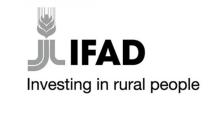Resource information
Secure access to productive land is critical to the millions of poor people living in rural areas and depending on agriculture, livestock or forests for their livelihood. It reduces their vulnerability to hunger and poverty; influences their capacity to invest in their productive activities and in the sustainable management
of their resources; enhances their prospects for better livelihoods; and helps them develop more equitable relations with the rest of their society, thus contributing to justice, peace and sustainable development.In this policy, land refers to farmland, wetlands, pastures and forests. Land tenure refers to rules and norms and institutions that govern how, when and where people access land or are excluded from such access.
Land tenure security refers to enforceable claims on land, with the level of enforcement ranging from national laws to local village rules, which again are supported by national regulatory frameworks. It refers to people’s
recognized ability to control and manage land – using it and disposing of its products as well as engaging in such transactions as the transferring or leasing of land. The focus on land does not mean that the inherent linkages to other natural resources, especially water, are ignored. Rather, the aim is to ensure a policy, institutional and operational focus that would otherwise be diluted if the scope were broadened to the larger issues of access to natural resources, and of governance and management.



